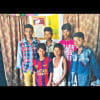200 Bangladeshi children in 27 Indian shelters
The number of Bangladeshi children and adolescents staying in 27 correction centres under the government of West Bengal has crossed 200.
Twenty-eight of them are at Kisholoy Correction Centre alone in Barasat of the state. Others are at different correction centres, including Shuvayan in Uttar Dinajpur, Lilua in Hawrah and Drubasram in Kolkata.
Of them, Mamun from Bagerhat, Hridoy from Narail and Mahim from Khulna in Bangladesh separately came to Kolkata out of curiosity and have been detained on charge of illegal entry.
Ten-year-old Mahim had entered West Bengal to meet his mother Ruma Khan, who crossed the border after her second marriage. Police caught the boy in Bangaon.
Nitun Biswas of Mymensingh entered West Bengal with a valid passport as a tourist. He stayed here three more months with expired visa. He tried to return home with the help of a broker and was detained by police at Shiladah Railway Station.
Previously, children like them had to stay in the correction homes for years as the process to prove their nationality was complicated as well as time-consuming due to bureaucratic tangles in the two countries.
In an investigation into the cause of delay behind the repatriation of the children, a long and time-consuming process has been identified. When the children are detained, they are taken to local police stations and produced before a court. The court sends them to correction centres.
In the meantime, efforts to collect their addresses continue. If the children can tell their addresses properly, a list of the addresses is sent to the state child protection office. The office sends the list to the state home ministry, which forwards it to the counsellor concerned at Bangladesh Deputy High Commission in Kolkata. The counsellor then sends it to the foreign ministry in Bangladesh for verification.
The foreign ministry directs the home ministry to submit an investigation report. The home ministry sends the list to local police stations and asks them to verify the addresses. The report is then forwarded to the Bangladesh Deputy High Commission in Kolkata.
The counsellor finally makes sure that the detained children or adolescents are Bangladeshis and issues them travel permit. After receiving the travel permit, Border Guard Bangladesh and Indian Border Security Force finalise a date for their handover.
This time, steps have been taken to simplify the process. The Bangladesh Deputy High Commission in Kolkata has taken an urgent initiative to quickly repatriate the children detained in Kolkata.
After getting information that Bangladeshi children are detained, officials of the Deputy High Commission will visit the correction centres and talk to the children. If possible, they will also talk to their families over phone.
The Deputy High Commission started the process on Wednesday. Counsellor and Head of Chancery BM Jamal Hossain told The Daily Star that he met all 28 children at Kisholoy Home in Barasat and talked to some of their families over phone.
He hoped that the detained children would return to their parents in a month.
Jamal added that they would visit other correction centres and take measures to repatriate all Bangladeshi children.

 For all latest news, follow The Daily Star's Google News channel.
For all latest news, follow The Daily Star's Google News channel. 








Comments